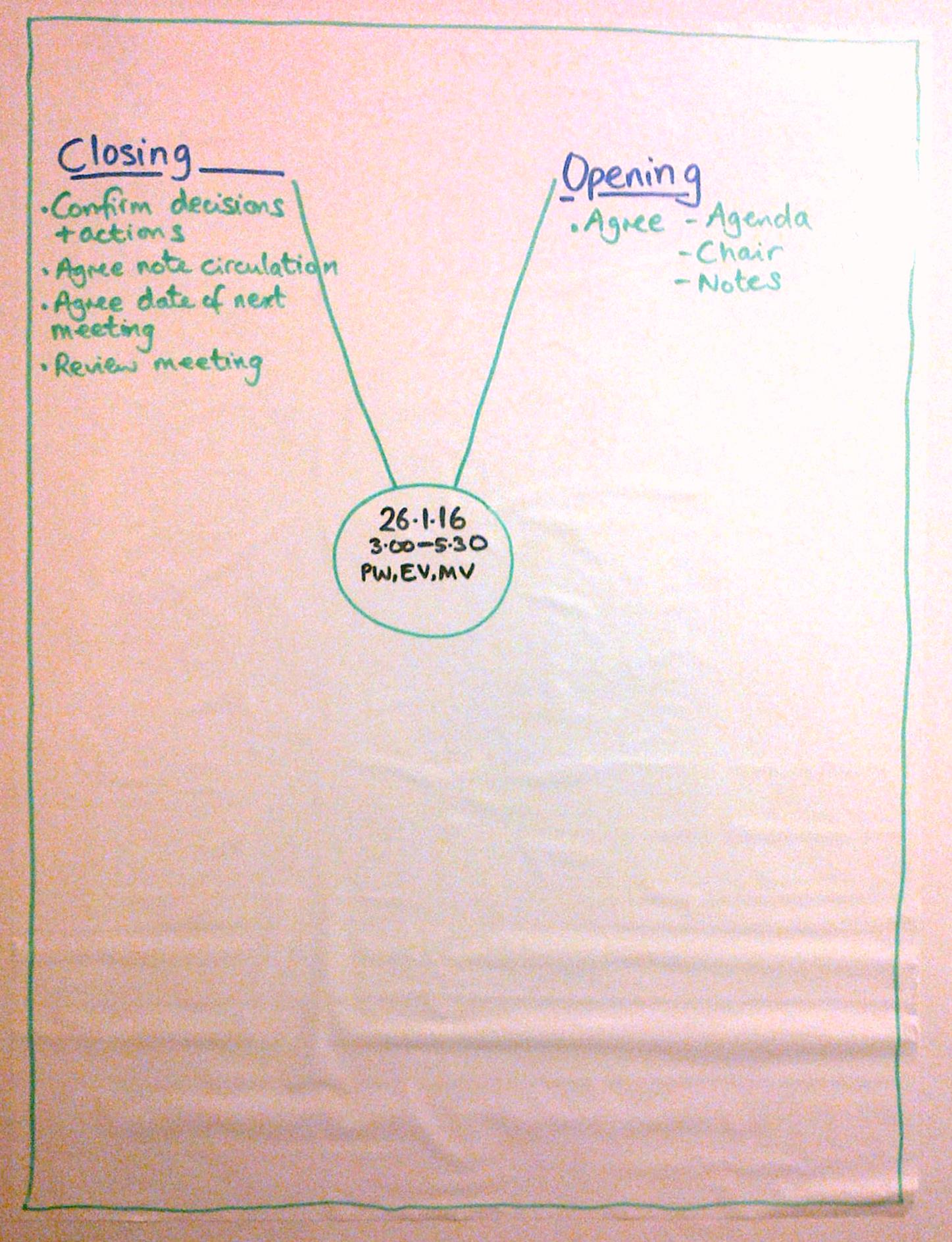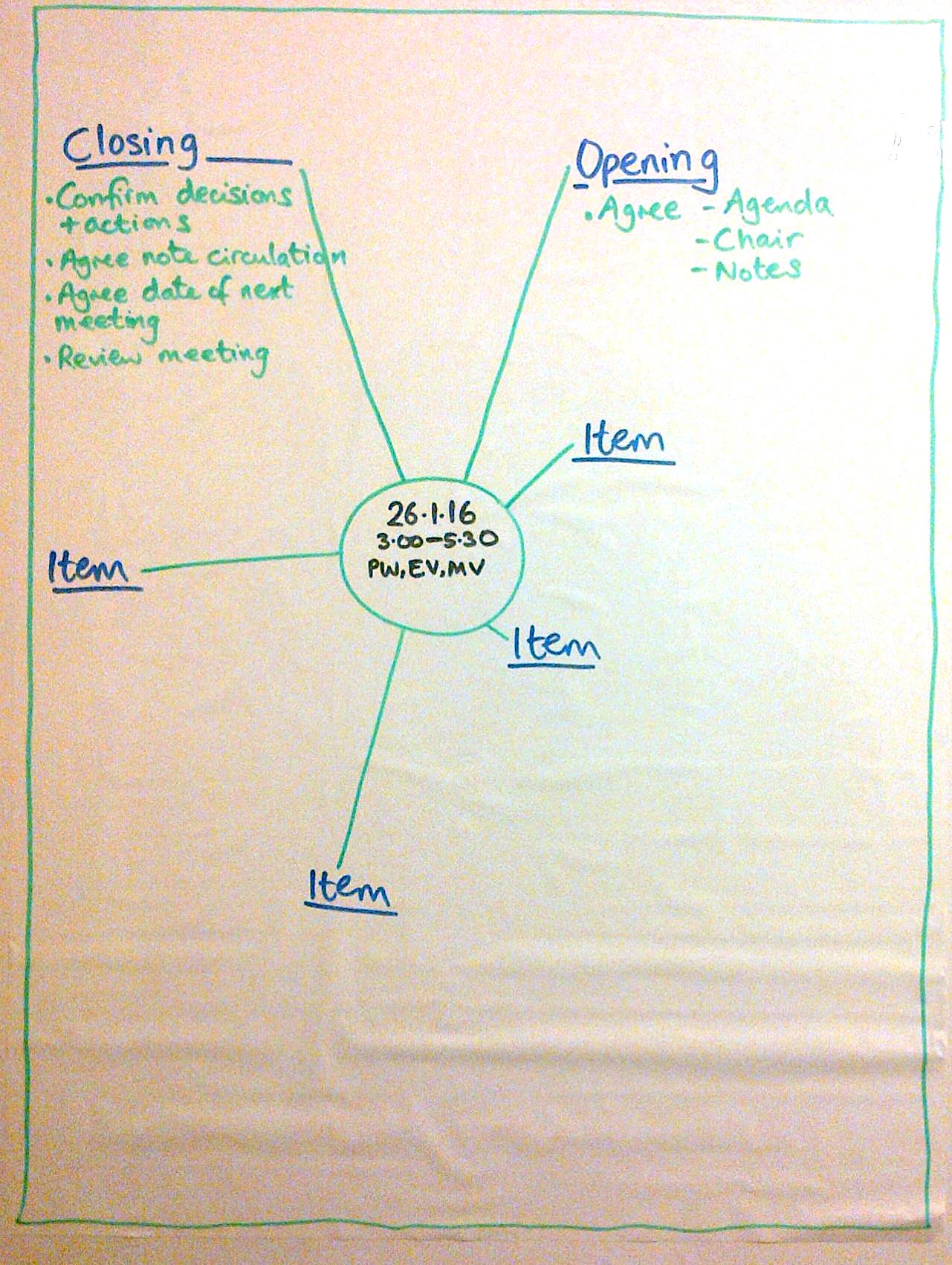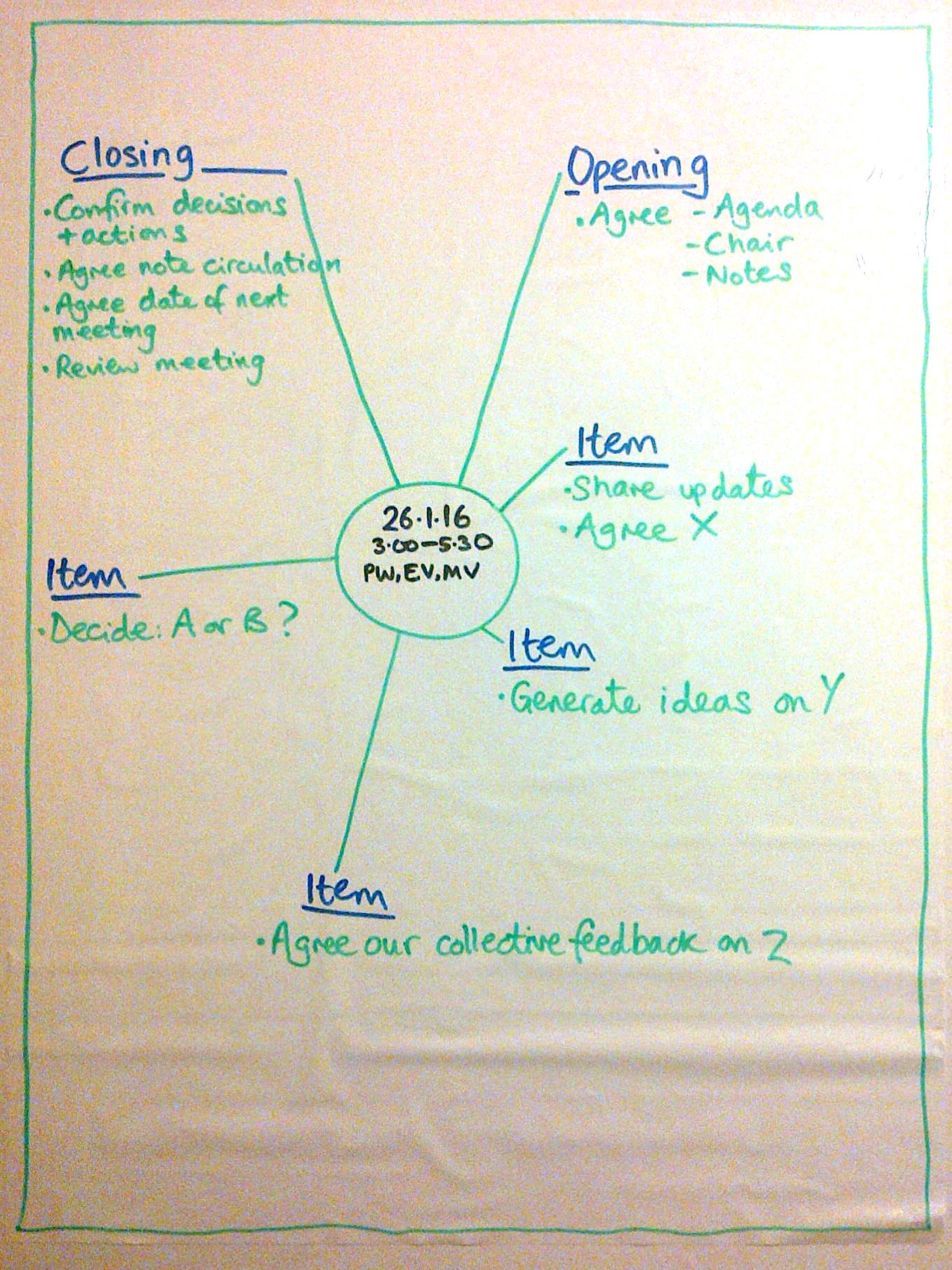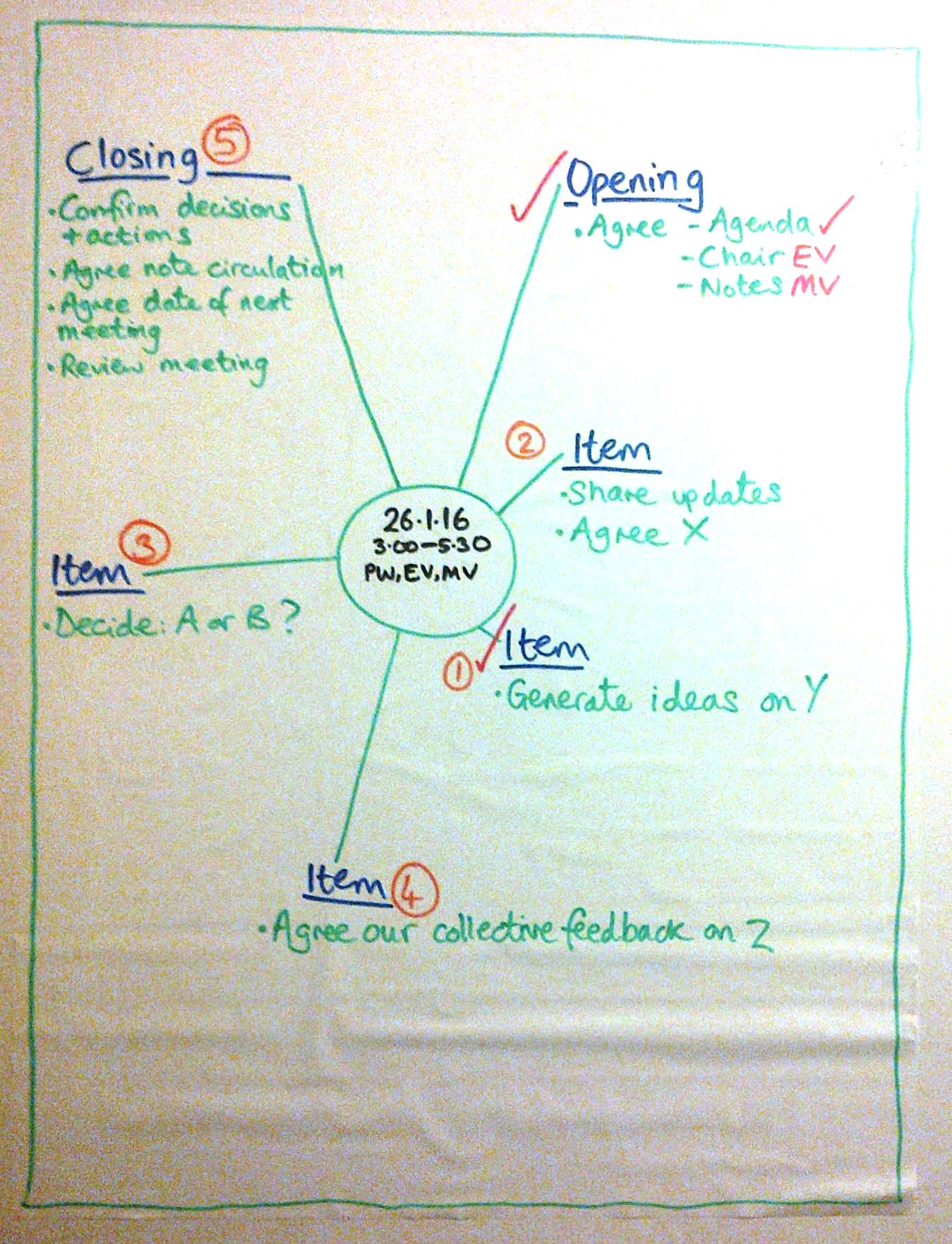acilitators need to stay out of the content- which belongs to the group - and intervene only to improve process. (There's more on this here: the neutral facilitator.) But sometimes we get tempted to smuggle in our own views when we question or reflect back to the group.
Fellowship - thanks IEMA!
I’m honoured and proud to have been invited to become a Fellow of the IEMA (Institute of Environmental Management and Assessment).
Powerful tools for planning stakeholder engagement
Join me at the IAF's Paris Conference, in October. I'll be sharing powerful tools for planning stakeholder engagement (pdf).
Here's a little taster video. See you there!
Peace, justice, partnerships and a strategic approach - 7/7 on business and the Sustainable Development Goals
Who will catch me when I fall?
Final places remaining - book now! Still conversations for sustainability leaders
Work, growth, innovation and equality - Sustainable Development Goals and business
Stonewall and P&G's work to promote equality for LGBT staff in Spain, Rype Office's repurposed office furniture for Public Health Wales, Willmott Dixon Interiors working with the Amber Foundation to help vulnerable youngsters into work... These are just some of the businesses featured in part six of my seven part series for The Environmentalist on how business can help support the SDGs.
Where next for your sustainability strategy?
In these turbulent days, with right-wing populist movements rising and an unpredictable political context, you may be asking yourself how this should be reflected in your sustainability strategy.
Perhaps there are critical business and organisational issues which need addressing, regardless of political uncertainty.
Personal resilience hits a nerve
Every single place at this first still conversation has been snapped up - its theme of personal resilience has clearly touched a nerve. Coming along are people like the CEO of a sustainability NGO, the head of sustainability at a local authority, the group sustainability manager at a nationally known construction company and a director from a pioneering sustainable business think tank.
Carousel in action
Still...... a new season of workshops for spring
Clean energy, thriving cities: Sustainable Development Goals #5
Bringing affordable off-grid renewables to remote communities in developing countries; using cutting-edge data analysis to save money and carbon in modern buildings; micro-managing students' energy use to balance the national grid: some of the brilliant things that are featured in the latest of my series on how businesses are helping contribute to meeting the Sustainable Development Goals.
What do we need now, from sustainability leaders?
When I got the news about the US Presidential election result, I went through a lot emotions that I'm still processing.
One that may have been shared by those of you who are looked to for leadership - in ways big or small - was uncertainty about what to say to people who are wanting guidance. I had to think about this pretty quickly, as I'd been asked present on leadership in the closing session of a four-day workshop on sustainable business.
Campaigners, community groups, activists and faith groups - run your business meetings better so you can get on with the important stuff!
If you're involved in a local group - campaigners, activists, community action, faith group - there will be some really important things you want to achieve in the world. And you'll have some kind of team, committee, council or similar organising the activities behind the scenes. How are those meetings? Clear, engaging, effective? Or dull, interminable, frustrating, repetitive?
I've led a couple of two-hour training sessions this year for groups on how to run meetings which make clear decisions that stick. So that they can spend time on doing the stuff that really matters.
Here are the handouts from the workshop I ran in mid November.
If you think your group would benefit, get in touch to see what I can do to help you.
Peer learning workshops - some emerging ideas
I'm excited about ideas for peer learning workshops that have been bubbling away in my head and are beginning to take shape.
Focused, coachy, peer learning
I want to bring together sustainability people of various kinds, to be able to talk with each other about their challenges and ideas in a more expansive and easeful way than a conference allows.
People really benefit from being able to think aloud in coaching conversations. I've seen the transformations that can happen when supportive challenge prompts a new way of looking at things.
We also get so much from comparing our own experiences with peers: finding the common threads in individual contexts, exploring ideas about ways forward.
I’d like to combine these things by making the peer learning available in smaller groups and smaller chunks, where the atmosphere is more like coaching.
What's the idea?
The idea is to run half-day workshops, with between 6 and 10 people at each event. The intention is that they are safe and supporting spaces, where people can talk freely. We'll meet in spaces that are relaxed, creative, private, energising and feel good to be in. (More comfortable than the stone steps in the picture.)
Each workshop would have a theme, to help focus the conversations and make sure people who come along have enough in common for those conversations to be highly productive.
I'd run a few, on different themes, and people can come to one, some or all of them. They don't have to come to them all, so the mix of people will be different for each workshop.
I'd charge fees, probably tiered pricing so that it's affordable for individuals and smaller not-for-profits, but commercial prices for bigger and for-profit organisations.
The content of each workshop will come from the participants, rather than me: my role is to facilitate the conversations, rather than to teach or train people.
Choices, dilemmas, testing
When I've tested this idea with a few people, many have said that the success of the workshops will depend on who else is there: people with experience, insight, credibility. People they feel able to trust, before they commit to booking. I think this is useful feedback.
On the other hand, I'm unsure about the best way to ensure this. Is it enough to include a description of "who these workshops are for" and leave it to people to decide for themselves? Or should I set up an application process of some kind: asking people who apply to include a short explanation of who they are, what their role and experience is, and why they want to come along.
If I set up an 'application' process, will that be off-putting to the naturally modest? Too cumbersome? Adding extra steps (apply, wait, get place confirmed, then pay...) feels risky: at each step, the pool of likely participants will get smaller. Will this make the workshops unviable? Who am I to choose, anyway?
Another option is to make the workshops 'by invitation' with people having the option of requesting an invitation for their friends, peers, colleagues - or even themselves. This is what I'm leaning towards at the moment, based on gut feel.
Will this increase people's confidence in the workshops - that not just anyone gets a place, their peers will provide quality reflections and be people worth meeting? Will it make those people who do get an invitation feel special, better about themselves?
And will I really turn down anyone who asks for an invitation? What will they feel?
I've set up a survey to gather views on this, as well as on the topics that will be most interesting to people. Please let me know here where's there a short survey. Discounts and prizes available!
How it feels to experiment
I'm not a natural entrepreneur. Some people love to experiment and learn from failure. Fail faster. Fail cheaper. Intellectually I'm committed to experimenting with these workshops: testing out ideas about formats, marketing, pricing, venues, topic focus vs emergence, length, the amount of 'taught' content vs 'created' content and so on.
Emotionally: not so much. I want to get everything right before I start (which is why it's taken me about six months to even get to this stage). I'm getting great support from lots of people, and boy do I need it. Even sitting here, I can feel the prickly, clammy, cold physical manifestations of the fear of failure.
I need to move through the fear and into the phase of actually running some test workshops. I know they'll be great. I can see the smiles, feel the warmth, visualise the kind of room we're meeting in and the I already have the design and process clear. I have a shelf of simple but beautiful props in my office. I am 100% confident about the events themselves, it's the communications and administration of the marketing that freaks me out.
Learning from the learning
So already I'm learning. About myself, about what people say they need, about how venues can be welcoming or off-putting, about how generous people are with their time and feedback.
Sweet like chocolate - protecting Earth's life support systems
In the fourth of my series on business and the Sustainable Development Goals, I found out about how Nestle and Mondelez are working to secure their long-term supply of cocoa, about how companies are calling for greater action on carbon emissions and how the pension fund of England's environment regulator is divesting from fossil fuels. This part of the series looks at Goal 13 Climate Action and Goal 15 Life on Land.
You can see the article over at The Environmentalist's website here. Login if you are a subscriber or an IEMA member, or register for a free trial. If that's not for you, the pdf is here.
Explorer Inge Solheim raised a flag representing Goal 13, Climate Action, in the community closest to the North Pole, to support the UN Global Goals for Sustainable Development. Image c/o Global Goals media centre.
She is Sustainable - sustaining the sustainers
Vertically, horizontally or circularly ambitious? Mothering or child-free, by choice or randomness? Urban or rural? Partnered for life or a free agent? Gay or straight or something else? Employed, entrepreneur or freelance?
Women who work in sustainability are all these things and more.
She is Sustainable was invented by five UK-based sustainability women (Becky Willis, Solitaire Townsend, Amy Mount, Hannah Hislop and Melissa Miners) who thought…
Fresh water, salty water and sustainable resource use - business and the Sustainable Development Goals #3
Free diving world champion Umberto Pelizzari, raised a flag to represent Goal 14, Life Below Water, off the coast of Formentera, to support the UN Global Goals for Sustainable Development. Credit: Enric Sala. http://www.globalgoals.org/media-centre/
In the third of my series on what business can do to support the Sustainable Development Goals, published in The Environmentalist, I look at goals 6 clean water and sanitation; 14 life below water and 12 responsible consumption and production.
I found lots of interesting action - most of which predates the SDGs - and was able to squeeze in impressive strides in reducing water use by Levi Strauss, Maersk Group starting to shift the entire ship breaking sector through its work in India and some head-to-head competition between Tesco and Sainsbury's on reducing food waste. And much more...
You can read the article in its rightful home on The Environmentalist's site here, or if you're not an IEMA member or a subscriber you can download a pdf here.
The inevitable referendum blog post - what now?
I'm really sorry
A former colleague of mine is researching whether he's entitled to German citizenship because his Dad was born in Leipzig. His Dad was brought to the UK aged 3, to escape Nazi persecution. The colleague is looking into this because his own young daughters are aghast at having their opportunities to live and work in the European Union so drastically curtailed. The layers of irony are inexpressible.
A young woman I know lives and works in London. We met this morning, and she was in tears. She's German. She's fearful about her job and her life here. She's feeling alone and unwelcome.
Social media is full of examples of people being openly and aggressively racist towards white Europeans, and also towards the more familiar victims of such abuse: headscarf-wearing Muslims, people of colour, foreign-looking or sounding. The result seems to have given people permission to unleash their worst selves. It's hard to practice assuming good intent.
Like another former colleague, I feel the need to keep apologising to friends and neighbours: it wasn't me, I voted remain, I stood in the rain handing out leaflets. I'm really sorry.
A little bit of theory
In conflict resolution, there's a neat conceptual framework which helps explain how to find common ground in the face of irreconcilable positions. PIN - Position, Interest, Need - basically invites you to ask 'what would that give you?', when faced with a positional statement. By telling each other about their interests and needs, the common ground shared by seeming opponents can be found and potentially expanded.
A referendum is a positional situation par excellence. The question has two - and only two - possible answers, which are mutually incompatible.
‘Should the United Kingdom remain a member of the European Union or leave the European Union?’
It's designed to oblige people to declare a position with clarity, to be definitive.
It's clear now that people had many distinct, different reasons for voting 'leave' - some of which were tangential to EU membership. But the binary referendum question doesn't make nuances and reasons explicit - we have to guess the motivations.
What we need are conversations which help us understand the interests and the needs. And I think it's best if the conversations are about the future (what country we want to become, what we want our relationship with EU to become) rather than the past (why we voted (or didn't) how we did) and who misled who.
understanding each other
I have heard a lot of remain supporters talking about the need to heal, reconcile, understand the complaints of leave supporters. And at least one notable leave supporter, Dominic Raab, spoke on BBC Question Time today (Sunday) about the need to reach out to the 48% who are 'nervous' (14m50s onwards).
This is not a question of wise, insightful people in one camp understanding the baffled and misinformed in another camp so that they can persuade them more effectively. That is doomed to fail.
As Karen Armstrong says,
Do not enter into dialogue unless you are prepared to be fundamentally unsettled.
That kind of dialogue only works if people from all the perspectives want to enter into it. If they want to better understand each other. If they actively want to find common ground and move forward together. If they want to test and discover the
...far more in common than that which divides us.
The purpose of a new conversation
I think there is a role for deliberative conversations about two related questions.
- What kind of relationship do we now want with the EU?
- What kind of country(ies) do we want to build and how shall we do that?
The first is important because the mandate to leave didn't contain within it any detail about what kind of leaving people were voting for.
This second is important because leaving EU won't solve the all the problems that leavers hope it will solve, just as remaining wouldn't solve all the problems that remainers want it to.
Who could convene it?
Some people have been enjoying the idea that no-one wants to hold this particular dirty-nappied baby. "You touched it last" is being played and it's giving rueful remainers a good laugh. Who should lead the Article 50 negotiations?
I'm attracted to the idea of a national unity Government of some kind, a thought echoed by Giles Fraser on the same edition of Question Time. Whether or not that is what we get, some body with the power to implement the mandate and which has some degree of credibility with leavers and remainers of many perspectives, could convene or commission this kind of process.
And if we are in the business of organising or convening those conversations, we need to be careful to scrutinise our own assumptions - 'they' only voted like that because they were misled by campaigners or the media, because they are old or poor or badly educated, or because they are young and wealthy and have degrees. Patronising and looking down on others is not a good way to enter into dialogue. If you can't keep your personal perspectives out of the room, then join in as a participant, not as a facilitator. The facilitators will have their work cut out, helping people listen to each other with respect.
Whether or not the negotiators choose to listen to the deliberations, we need to understand each others needs and concerns with compassion and empathy which outshines what we've managed over the last few weeks.
Petitions, legal technicalities and clutching at straws
I - bitterly sorrowfully - regret the result of the referendum. I wish it hadn't been called. I wish the campaigns had been more honourable and honest, less shrill. Less about rich white men deciding which of them gets to run Daddy's estate. But I think the campaigns to seek a re-run or treat it as advisory are futile and a bit dangerous in themselves: perpetuating the positional divisions and putting off the time when we being to find common ground again. Remain supporters look like sore losers, and that will cement the views of those who voted leave as a response to feeling disenfranchised and alienated.
What the result changes, and what it doesn't
The laws, taxes, spending programmes, climate change commitments we end up with will continue to be negotiated and decided on by politicians influenced by campaigners, lobbyists, the media and more-or-less formal test of public views. This will continue whether we are in the EU or not. I'm not convinced that trying to stop Brexit is the right strategy. (I reserve the right to change my mind, unlike referendum voters.)
Far more important to me, right now, is the agglomeration of individual conversations and interactions we have with each other - person to person. The referendum has shone a brutal light on divisions in our country, which are echoed and repeated across Europe and elsewhere. How shall we live together, in an increasingly frightening and resource-constrained the future? How shall we distribute power, agency, resources more fairly?
How shall we make sure that when the floods come, we rise out of the water carrying each other and not carrying guns?
Give your collaboration some backbone!
All collaborations need a strong, flexible backbone, holding it all together, channelling communication and letting the interesting bits get on with what they’re really good at. I first came across the term ‘backbone organisation’ in the work of US organisation FSG, writing about what they call collective impact, but the need for a central team of some sort has been obvious throughout my work on collaboration. What is the ‘backbone’, and what does it do?




















